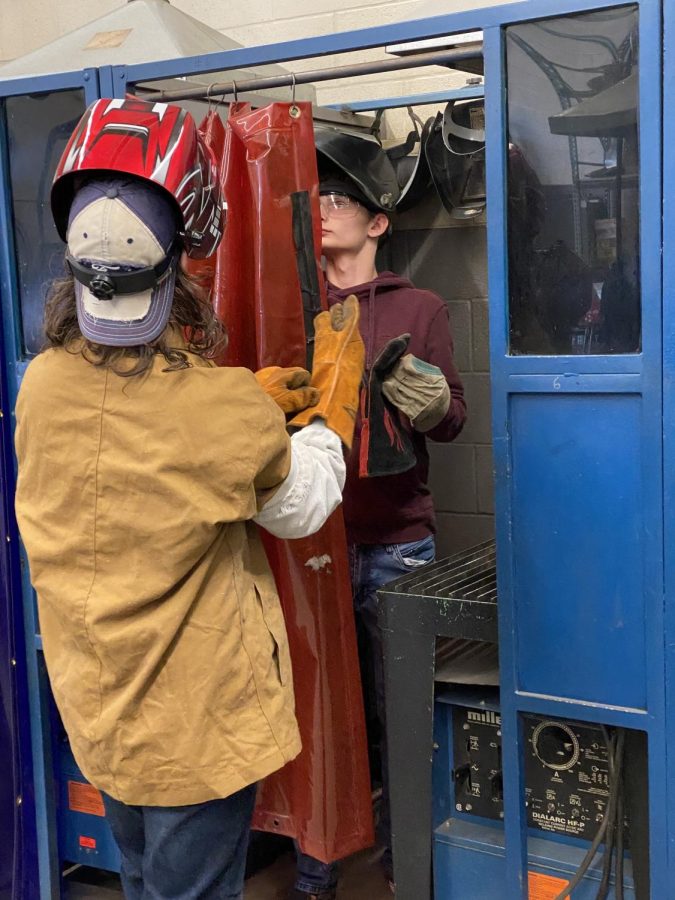Trade school and apprenticeships offer amazing opportunities
Alex Smith and Matthew Sense are two DCHS students learning the skill of welding.
Many students are now encouraged to go to college after graduating high school. However, college is not the only way to further your education; trade school also allows you to further your skill set. The trades are all around us, from electricians, plumbers, pipe fitters, and carpenters that we might hire, to the train operators, chefs, welders, and tool and die makers. These are all jobs that are required to make the world go round. We all rely on the people who do these jobs to make our everyday lives run more smoothly. Unfortunately, the trades are often left behind when we think about the options for our futures.
There are many different ways to be introduced into the trades; one option is trade schools. They often offer smaller classes, flexible start times, and you have the possibility to get a degree faster than you would at a four year college. These schools also rely on hands-on training to teach students, allowing students to visually learn the material through practice and repetition.
The second option is apprenticeships which allow students to have that same hands-on experience and gain an education with no debt. This is because while you are learning you will also be earning a living wage as well. Apprenticeships also allow students to create a pathway to a middle class job without a four year degree. Middle class jobs are usually higher pay jobs. You can have no school debt and a middle class pay, all without having to go to a traditional school building.
Finally, your third option might be something in the middle. This is because some trades require you to be certified from a trade school and to have an apprenticeship. Each trade requires something a little different and you should become familiar with requirements before you start down a path.
Kyle Haidet, DCHS senior, is pursuing welding. He wants to pursue the trades because he is “a lot better at hands-on learning.” He stated, “I’ve always been working with my hands and it’s what I prefer.” He even has a plan for how he will pursue his dreams using trade skills, stating, “I am doing the welding program so I can do pipeline welding to further my career. Hopefully with my career I can retire, and it should give me an early retirement. After that I can do whatever I want to do.”
Surprisingly enough, creating a career after high school in the trades is not as rigorous. Kyle stated, “If you do the dual credit program, it will take you two school years and you will have a certification when you graduate. It can take longer, but you should be able to weld at the end of high school.”
Another supporter of the trades is Mrs. Kirkwood, DCHS student counselor. She believes that “individuals that have a passion for working with their hands are important in our world.” She stated, “Every one of us have our own path for our careers, and it is important that we realize the worth and need of all areas.” Trades are important to wire houses, fix cars, and even build your home, and there are “many students that are blessed with these abilities.”
If you are interested or have any questions, be sure to contact Mrs. Kirkwood or Mrs. Bieghler. Other students who are pursuing the trades after high school can also be a good resource. There are more things to do after high school than going to college, working at a restaurant or a factory. So, if you are good at working with your hands and have no clue what the future holds, you should take a look at the trades. Remember, ask questions, research, and there will always be a need for trade skill workers.

Ava is a senior at Delphi Community High School and is in her third year of Parnassus. She is a member of the DCHS plays, musicals, and French club. She...













